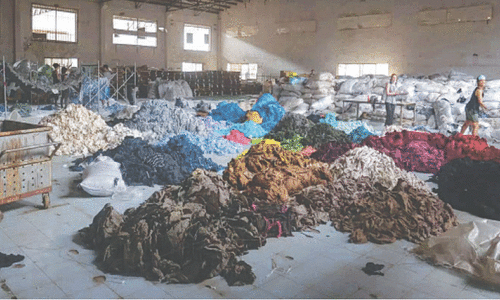ISLAMABAD: Finance Minister Ishaq Dar said on Thursday that Pakistan has successfully completed 10th quarterly economic review with the International Monetary Fund (IMF).
“The government is now set to achieve five per cent economic growth target this year, along with development and creation of jobs,” Mr Dar said while speaking at a joint news conference with Chief of IMF mission to Pakistan Harald Finger.
Mr Dar said it was for the first time that Pakistan had successfully completed 10 quarterly reviews with the IMF.
Successful talks completion will lead to release of $500m tranche
‘Highly successful completion’ of negotiations with IMF under the three-year extended fund facility (EFF) would lead to disbursement of 10th tranche of $500 million, he said.
Harald Finger said that constructive discussions with Pakistani authorities have led to “staff level agreement on the completion of the 10th review under the Extended Fund Facility (EFF) arrangement.”
Subject to approval by the IMF Management and the Executive Board, about $497 million would be made available to Pakistan, he said.
Dr said that the government was committed to implement structural reforms in areas of taxation, energy, monetary and financial sectors and public sector enterprises.
The government, Dar said, met all of the end-December 2015 quantitative performance criteria, including SBP’s net domestic assets, net international reserves, foreign currency swap/forward position by significant margins. Similarly, quantitative performance criteria on government borrowing from the SBP and budget deficit for end-December 2015 were over-performed.
He said the indicative target for end-September 2015 on targeted cash transfer through Benazir Income Support Programme (BISP) and on accumulation of power sector arrears were also met. Likewise, the Federal Board of Revenue not only achieved its second quarter target of Rs750bn, but also recouped Rs35bn of the shortfall of the first quarter.
Against the indicative target of Rs1,390bn for the first six months of the year, FBR collected Rs1,385bn. The collections improved by around 18.2pc as compared to the last financial year.
The finance minister said the stable growth in workers’ remittances and low oil price continued to help contain the current account deficit.
As of Jan 29, the SBP-held reserves stood at $15.435bn and that of scheduled banks at $4.84bn, totalling $20.275bn.
Harald Finger agreed with the finance minister that “economic activity remains robust,” adding that although a weak cotton harvest, declining exports, and a more challenging external environment were weighing on growth prospects, real GDP growth is expected to reach 4.5pc this fiscal year helped by lower oil prices, better energy supply, China-Pakistan Economic Corridor (CPEC)-related investment, buoyant construction activity, and acceleration of credit growth.
“The mission welcomed the authorities’ strong programme performance in the second quarter of fiscal year 2015-16. End-December 2015 quantitative performance criteria, including the budget deficit target, and the floor on the SBP’s net international reserves, have been met,” the IMF official said.
He said that while many structural benchmarks had been met, “measures pertaining to the energy sector reform and restructuring of loss-making public enterprises are yet to be implemented.”
He said that advancing the energy sector reform, setting in motion competitiveness-enhancing improvements in the business climate, continuing to expand the tax net, and ending losses in public enterprises will be critical.
Dar further stated that large-scale manufacturing had shown remarkable 5.53pc growth in July-November period of the current fiscal year against 3.15pc of the same period last year.
This was supported by 32.3pc growth in automobile industry, 15.2pc growth in fertilisers due to adequate gas supply, 11pc increase in chemicals and 9.3pc improvement in rubber products.
The cement sector is also showing a lot of growth and private sector credit had doubled in recent months.
“All this indicates that growth momentum is building and we are well positioned to achieve five per cent growth target or more as investment related to CPEC is contributing positively.” Much greater than predicted macroeconomic stability had been achieved, he said.
Dar said the performance of the banking sector remained robust as earnings surged and solvency strengthened. There profitability increased by 33pc and capital adequacy ratio improved to 17.3pc against minimum requirement of 10.25pc.
He said the government efforts of broadening the tax base will be strengthened further through the recent introduction of “Voluntary Tax Compliance Scheme” for traders and by enhanced use of IT and information inflow from multiple sources. He said the government continued to diversify financing from both domestic and external sources, lengthen the maturity profile of domestic debt and improve the balance between domestic and external debt.
Published in Dawn, February 5th, 2016














































